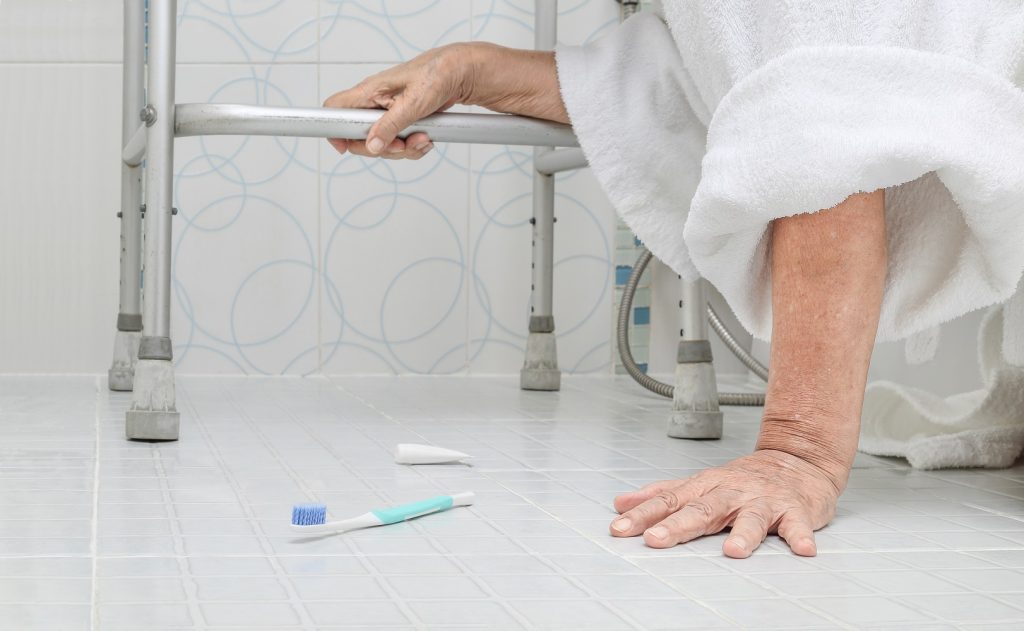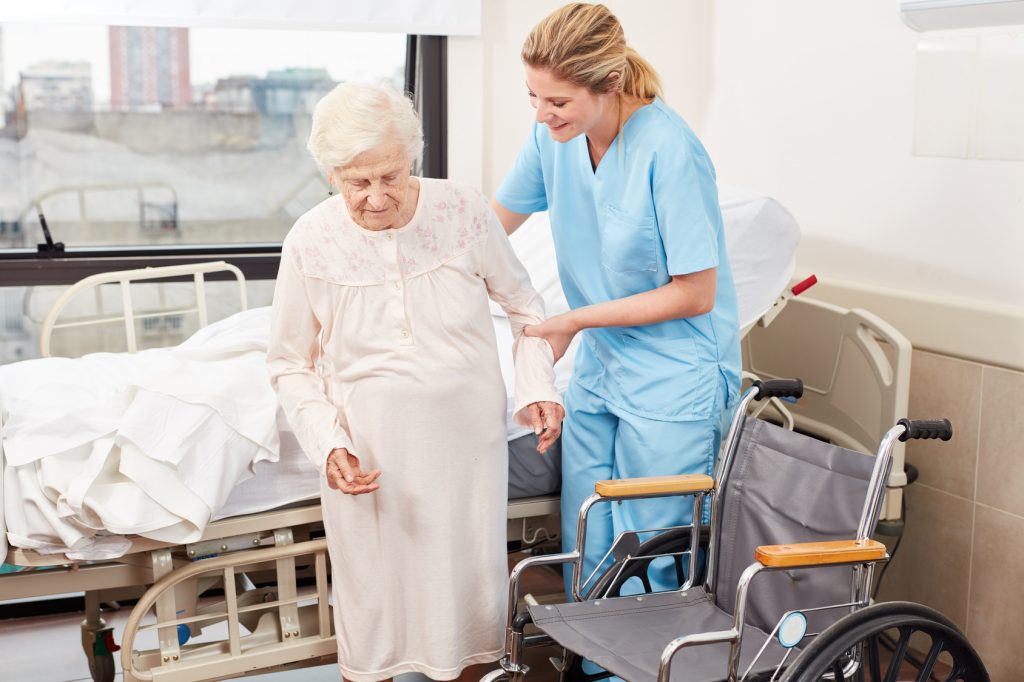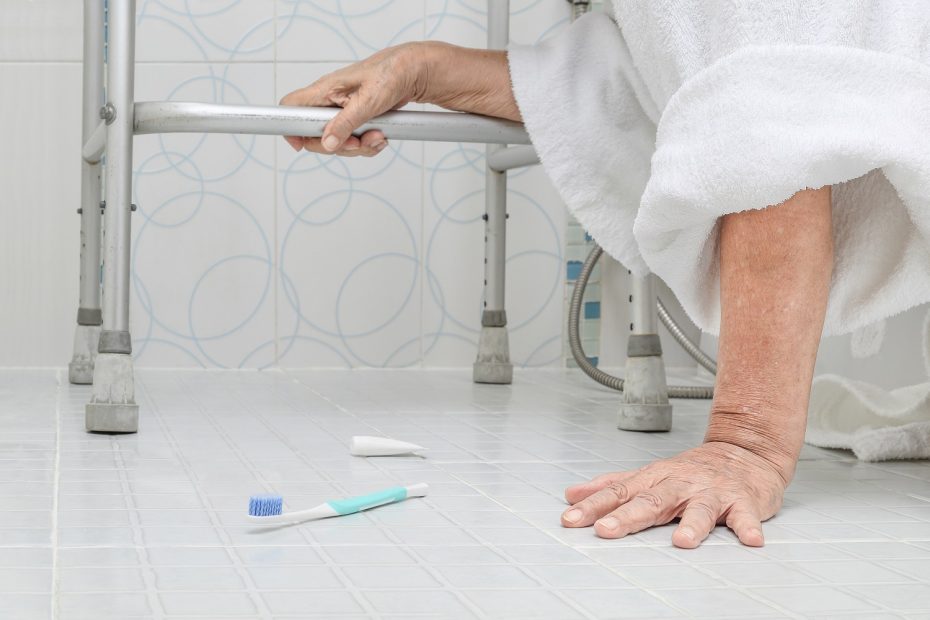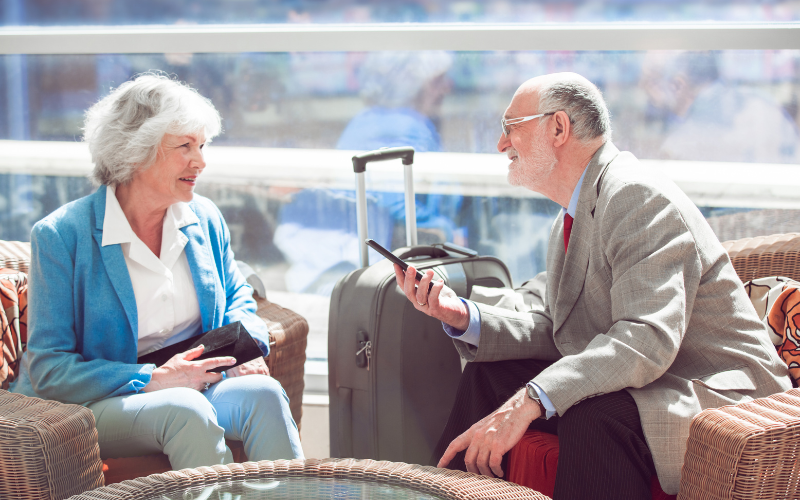
Falls pose a significant danger to individuals aged 70 and over, as they are at risk of sustaining serious injuries that can be fatal. Even ground-level falls, while they carry a lower risk of fatal injuries for those under 70, can be particularly hazardous for older adults. Low-level falls caused by tripping on a sidewalk or slipping on a tile floor can result in substantial injuries, even though such incidents are often underestimated as minor or trivial.
In the U.S., approximately one in four seniors experiences a fall each year. Various factors influence the severity of injuries related to falls. For example, the extent of hip or brain injuries can vary depending on which body parts bear the brunt of the impact during a fall and how far they have fallen.
How do falls impact senior health?
A fallen senior may succumb to a broken hip or a traumatic brain injury (TBI). Most commonly, seniors who fall suffer from fractured bones and soft tissue injuries. Due to age and progressing frailty, older adults may require hospitalization after traumas that at first appear minor.
Hip fractures, for instance, require that the senior be hospitalized. The sedation and surgical procedures performed in a hospital setting traumatize the injured elderly individual even further. Treatment and prognosis are also complicated for seniors who suffer less-serious injuries, like broken bones. After a hip replacement, the recovering senior is less mobile. Additionally, the elderly individual is weaker and feels more pain. The resulting discomfort may be temporary or long-lasting, leading to the necessity of extra in-home help from professional caregivers or family members.
The course of recovery is bleak for seniors who undergo falls due to age-related causes. Older people are more likely to have pre-existing medical conditions, like heart disease, and be frail, for instance, which places them in a position to heal less quickly than younger, healthier individuals. Seniors who do recover from both the fall and treatment may do so more slowly. This prolonged recovery period in the hospital exposes these vulnerable individuals to infections, like pneumonia, sepsis, and urinary tract infections that are easily acquired in hospital settings.
What are long-term effects of falling?
The risks for long-term health complications are heightened by falls in the aging population. The majority of seniors who sustain injury after a fall are no longer fully able to care for themselves. Furthermore, elderly individuals are unlikely to resume their usual activities due to fear of falling again.
When seniors reduce their physical activity levels, their frailty increases. A weaker bodily constitution can contribute to events that lead to a subsequent fall. Without even mild exercise, seniors’ muscle strength and bone mass decrease; flexibility and coordination are also reduced. Complicating health matters further, inactive seniors put themselves at risk for depression, delirium, dementia, and other worsening mental states. The rate of cognitive decline, especially dementia, increases among seniors who fail to engage in regular exercise as cardiovascular and cognitive health are linked.
Why do seniors fall?
Seniors are at more risk for falls for a myriad of reasons. Even physically robust seniors may experience falls due to factors like poor vision and the physical environment.
- Poor vision: Eye-related diseases prevent elderly individuals from seeing obstacles and fall hazards, like steps and thresholds. Seniors who refuse to wear eyeglasses are also at risk for falling.
- Medication side effects: Almost half of all seniors take five prescription drugs per week. Medications prescribed to seniors can have side effects that contribute to falls. Medicine interactions can also increase the risk of falls, as well as powerful side effects from supplements and over-the-counter medicines. Unwanted medication side effects such as drowsiness, low blood pressure, and dizziness are often responsible for accidents. Common medicines that are to blame for instability and resulting falls include sedatives, anti-depressants, opioids, and cardiovascular drugs.
- Environmental factors: The senior’s home environment is where most falls occur. Poor lighting, clutter in the home, and slick floors are culprits. Modifying the home setting helps prevent falls and injuries. Adding lighting, reducing clutter, and adding non-skid rugs are simple and effective fall prevention strategies.
Consequences of Falls in the Elderly
As we have already discussed, falls can have serious physical consequences for seniors including broken bones and head injuries that may require long-term hospitalization. Falls also lead to social and psychological consequences that can reduce their quality of life such as a fear of falling again and loss of independence.
The following are the main consequences of falling for seniors:
Physical Consequences
- Bone fractures: Broken bones are a common injury from falling, especially the hips and arms from breaking the fall.
- Pain and discomfort: The pain and discomfort caused by a fall can last for a long time following the incident.
- Prolonged immobility: If a fall renders a senior immobile for a prolonged period of time, they may experience additional consequences such as reduced muscle strength, cardiovascular issues, and difficulty breathing.
- Inability to move independently: Severe injuries from a fall may leave a senior unable to move around without assistance.
- Unsteady walking pattern: An injury from a fall can make it more difficult to walk which increases the risk of another fall.
Social Consequences
- Loss of independence: Seniors who experience severe injuries from a fall may need assistance with a range of physical activities, resulting in a loss of their independence.
- Changes in daily routines: An injury can force seniors to change their daily routines as they may no longer be able to handle certain activities on their own.
- Financial issues: Long-term hospitalization and surgeries that result from falls can have a major impact on seniors financially.
- Loss of social contacts: Seniors may experience reduced socialization after falling due to prolonged hospitalization or limited mobility that makes it more difficult to visit with others.
- Reduced quality of life: Dealing with chronic pain or immobility from a fall that results in a loss of independence and socialization can greatly reduce a senior’s quality of life.
Psychological Consequences
- Frustration: Seniors may become frustrated if an injury from a fall has resulted in chronic pain or robbed them of their independence to live their day to day lives without assistance.
- Fear of falling: Those who have experienced a fall may avoid certain activities and restrict their own movements out of fear of falling again.
- Distress and anxiety: The frustration and fear of falling can lead to levels of stress and anxiety the senior may not have felt before their fall.
- Embarrassment: Seniors may be embarrassed about their fall or the usage of walking aids such as canes or walkers as a result of the fall.
- Loss of self-esteem: Seniors who are no longer able to care for themselves due to an injury from falling may experience a general loss of self-esteem.
How can falls be prevented?
The elderly and their caregivers have access to many methods to promote safety. Adjusting the home environment should be a starting point. All stairs should feature handrails on both sides and adequate lighting. Add grab bars in the bathroom and include a transfer bench in the shower for added stability.
Seniors are advised to wear appropriate footwear inside the home and outside of it. Discard worn shoes or improperly fitted ones, as they can lead to falls. Caregivers should ensure that elderly care recipients do not move throughout the home in backless slippers, socks or stockings.
Equally important is exercise. Regular physical activity strengthens muscles, increases flexibility, and improves coordination—conditions that prevent falls and fractures. The elderly may receive an exercise program from medical doctors or physical therapists, and caregivers can help execute the exercise regimens.
Check out our Safety Checklist For Seniors Who Live Alone

Prevent Falls with Elderly Care from Assisting Hands
Ensuring the safety of your aging loved one to prevent falling is crucial. Beyond home modifications, families are encouraged to enlist the assistance of in-home caregivers from Assisting Hands Home Care. Our home care services are designed to safeguard the seniors in your life.
If medications induce dizziness, our skilled caregivers will transport the senior to their doctor, who will reassess the medications and potential side effects. Once home, our caregivers provide medication reminders to ensure timely and accurate dosing. Assisting Hands caregivers also help care recipients navigate their homes safely, clearing walkways of clutter and assisting with transfers between the bed, couch, or wheelchair. During the night, we illuminate pathways with nightlights to ensure safe restroom visits.
Fall hazards are everywhere, and seniors are the most vulnerable to falling and sustaining serious injuries. Ensure your loved one’s well-being by consulting Assisting Hands Home Care for our invaluable fall prevention services. Our services are available to seniors living in Medinah, IL | Glendale Heights, IL | Itasca, IL | Bensenville, IL | Elmhurst, IL | Villa Park, IL | Addison, IL | Lombard, IL, and the surrounding areas. You can call us at (630) 526-6522 to schedule an in-home assessment.
















